
 |
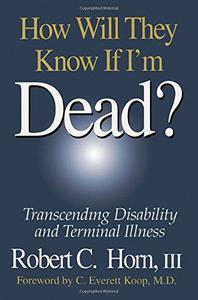 How Will They Know If I'm Dead?: Transcending Disability and Terminal Illness By Robert C. Horn 2017 | 168 Pages | ISBN: 1138445592 | PDF | 12 MB Most books on terminal illness focus on death and dying. This book is about neither. It doesn't deal with statistics or the medical aspects of a crippling disease, and it isn't written by a celebrity about their amazing recovery. This book is about a real person and a true hero.Bob Horn, an authority on the Soviet Union and foreign policy in the Third World, a successful author and teacher, an involved husband and father of three in his mid-forties, awoke one day to find his entire world upside down. Diagnosed in 1988 with ALS (amyotrophic lateral sclerosis), better known as Lou Gerhig's disease, Bob had to deal with the reality that his situation was terminal.How Bob and his family coped and continue to cope or "battle" as Bob prefers to call it with disability and terminal illness is an amazing story that you will find inspiring, heartwarming, humorous, upsetting, and a celebration of the triumph of life. Having already beaten the odds that say he should have died years ago, Bob accomplished the most unbelievable feat he wrote this book. It was discovered that Bob had a pulse in his right foot that could be felt and manipulated. By hooking his foot up to a computer, Bob found he could maneuver the cursor and produce documents. He has written articles for the Los Angeles Times, sermons for his church, correspondence, and most impressive of all this book. Not bad for a man who is completely paralyzed and hasn't moved in six years! 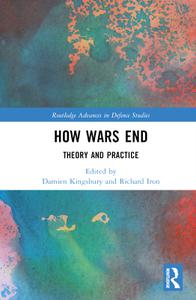 How Wars End: Theory and Practice English | 2023 | ISBN: 1032329513 | 265 Pages | PDF (True) | 10 MB The volume draws on the direct experience of both soldiers and academics, who in each case have also been advisers on fighting and ending wars. Unlike more theoretical works, the book draws on first-hand experiences in the case studies, which include the wars in Iraq, Afghanistan, Sierra Leone and Indonesia, among others. The volume is constructed around a series of themes. The first theme is why wars start and how they can be understood, based on the assumption that knowing how, and why, wars start is fundamental to understanding how they might end. The second is what sustains wars and what makes them difficult to end. Again, once wars start, understanding what keeps them going is critical to how to end them. The third focuses on the role of external intervention in ending wars, including as a belligerent partner in war, as a peacemaking or peacekeeping force, and as a mediator between warring parties. The fourth addresses the issue of 'ripeness' and the right conditions for ending wars. The fifth addresses the modalities for ending wars and creating peace, with the sixth theme being focused on transitions to peace and what is required to help make those transitions successful. 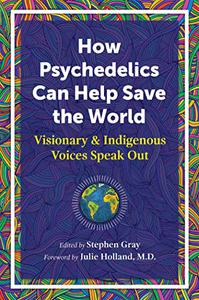 How Psychedelics Can Help Save the World by Gray, Stephen;Holland, Julie; English | 2022 | ISBN: 1644114909 | 374 pages | True EPUB | 7.9 MB 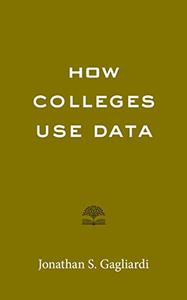 How Colleges Use Data by Gagliardi, Jonathan S.; English | 2022 | ISBN: 1421445190 | 233 pages | True PDF EPUB | 5.02 MB  Housing in America; An Introduction; 2 by Bull Marijoan English | 2022 | ISBN: 1032183373 | 311 pages | True PDF | 26.01 MB  Homework Helpers: Algebra, Revised Edition by Denise Szecsei English | September 15, 2011 | ISBN: 1601631693 | 238 pages | PDF | 5.75 Mb Homework Helpers: Algebra is a straightforward and easy-to-read review of arithmetic skills emphasizes the role that arithmetic plays in the development of algebra covering all of the topics in a typical Algebra I class, including:  Homemade Contrivances and How to Make Them: 1001 Labor-Saving Devices for Farm, Garden, Dairy, and Workshop by Skyhorse Publishing English | May 17th, 2022 | ISBN: 1602390185 | 640 pages | True EPUB | 49.24 MB This illustrated compendium teaches you how to build and use hundreds of simple, effective, and truly old-fashioned devices for farming and rural living.  Agnieszka Rasmus, "Hollywood Remakes of Iconic British Films: Class, Gender and Stardom " English | ISBN: 147444878X | 2022 | 184 pages | PDF | 7 MB This is the first book-length study to address film remaking from a unique perspective of a cross-cultural exchange between two countries which not only share a language but also a history of film cooperation. It examines a selection of cult and classic British titles made at the time of Hollywood's active involvement in the domestic film production, with case studies from a number of genres. The book investigates the ways in which these '60s and early '70s films are remade by Hollywood in the new millennium by focusing in particular on how class and gender representations are updated to accommodate for cultural, societal and technological transformations. It shows a tendency for remakes to revise old power dynamics by means of gender reversal and to replace class conflicts with sex wars. Since all the British originals feature iconic British actors, analysing their Hollywood alter-egos becomes another important indicator of adaptation strategies where casting American or British actors determines the remake's gender politics and genre markers. 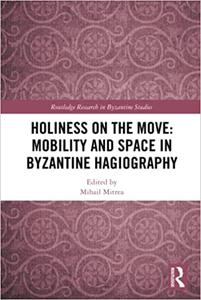 Mihail Mitrea, "Holiness on the Move: Mobility and Space in Byzantine Hagiography " English | ISBN: 103229079X | 2022 | 272 pages | PDF | 21 MB Holiness on the Move: Mobility and Space in Byzantine Hagiography explores the literary, religious, and social functions of monastic mobility in Byzantine hagiography, touching on aspects of space, narrative, and identity. The ten chapters included in this volume highlight the multifaceted and rich nature of travel narratives, exploring topics such as authorship and audience, narrative structure and function, identity-making and practicalities of and discourse on travel. In terms of geographical span, the case studies cover Constantinople and its hinterland, Asia Minor, mainland Greece, Trebizond, the Balkans, and southern Italy and range chronologically from the end of the sixth to the fourteenth century.  Holiday Hacks: Easy Solutions to Simplify the Most Wonderful Time of the Year by Keith Bradford English | October 2, 2018 | ISBN: 150720857X | 164 pages | PDF | 3.54 Mb Streamline and simplify your holiday season with this comprehensive guide filled with quick tips, easy hacks, and fun DIY project ideas-all designed for the most wonderful time of the year! |